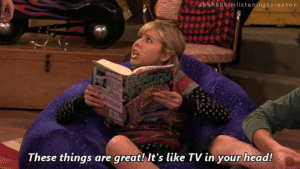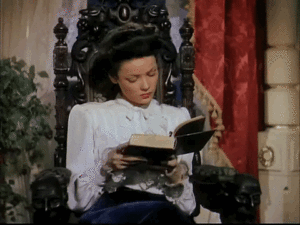I wrote an article last year about the 7 most important books to help Christians understand and live out their faith.

As I was writing it, I realized most of the books I’d read about Christianity had been written by white men. Now, there’s absolutely nothing wrong with reading books written by white men. But just reading books by white men limited my understanding when it comes to the work of Jesus. As James Cone said:
You are looking at it from the perspective of those who win. You have to see it from the perspective of those who have no power… When you don’t have the guns, when you don’t have the military power, when you have nothing, how do you keep going? How do you know that you’re a human being? You know because there’s a power that transcends all that. And as long as you know that, you will resist.
When I began to understand the danger of thinking about the Bible only through the lens of white men, I discovered I was probably missing out on a lot of good and powerful perspectives. And I don’t like to miss out on wisdom, so I started consuming books written by men and women who aren’t white.
Plus,I believe racial reconciliation is a central aspect of the Gospel. As pastor Matt Chandler said:
“This theme of multicultural, racial harmony is really closely tied to the Gospel. It isn’t the Gospel, but it is really closely tied to it. It’s so closely tied to it, that it is an application of the Gospel. And so we can’t be a people who say, ‘It’s only about the Gospel, not about the application of the Gospel.’”
These 7 books helped me understand the relevance of the Gospel to people who have been passed over and oppressed. None of them will be easy and fun to read, especially if your skin color is white. But they also don’t aim to produce guilt or shame for being white. Each book explores the black experience in America and calls each of us to repentance, redemption, and reconciliation in response to Jesus.
1. The Color of Compromise
This great intro to Black history focuses specifically on the American Church. Jemar Tisby is a Christian historian based in the Mississippi delta. This book wasn’t a fun read, but it’s an important one to understand the ways the American Church has been complicit in, and fought against, racism in our country.

What It’s About: The history of race in America, and how Christians reacted to it. Tisby covers attitudes about race from colonial times, to the antebellum period, all the way through into today. He unearthed incredible insights about each era and clearly demonstrated how Christians met or failed in their mission to love their neighbor.
Why You Should Read It: Perspective plays a key role in most conversations, but especially in conversations about race. For too long, I assumed I understood racism and how it used to affect people. I thought the wounds and legacy of racism had been healed and washed over, especially within churches. Tisby effectively helped me see how the trauma inflicted on black people in America has not disappeared in a generation. He showed me how Christians must examine their motives carefully, and to ensure their loyalty rests in Jesus and nowhere else. And he inspired me to pursue excellence in love and grace now.
It’s not a book about white guilt. It’s a book about the grace of Jesus and how it transforms the world. The question is whether we will join in the work of Jesus’ kingdom.
2. I’m Still Here: Black Dignity in a World Made for Whiteness
This book hooked me from the first line. Austin Channing Brown is a social activist who lives in Detroit, and she writes very bluntly about the work that needs to be done to reconcile us to Jesus and to one another. Her writing hits like a sock in the face and woke me up from my mindless slumber. So great!
What It’s About: “I’m Still Here” is Brown’s memoir about being a black woman in a predominantly white culture. And by “white culture” I don’t mean America. She grew up in predominantly white schools and white churches. Her book tells the story of how she discovered the existence of whiteness and how she eventually found a way to speak about it and cut through it.
Why You Should Read It: The idea of “whiteness” not being synonymous with skin color was a new idea to me when I first read this. It’s not an easy idea to understand, but Brown wrote so plainly and passionately about it, I began to see glimpses of how it’s woven into every area of my life and understanding of the world. Whiteness “is a tradition that must be named and a religion that must be renounced” because if we don’t see it and understand it, then we participate in it unintentionally.
And it’s nearly impossible to fully love and embrace the whole Gospel without confronting and redeeming our blind acceptance of what we’ve been handed.
3. Let Justice Roll Down
John M. Perkins was born in Mississippi in 1930. His mother died early. His father abandoned him. And when John was seventeen, his brother was killed by a police officer. He didn’t become a Christian until later on in his 20’s, but the Gospel completely transformed him. He became an evangelist and community activist in the Jim Crow south and transformed his community.
What It’s About: This is Perkins’s memoir and mission statement. It’s his testimony and appeal to us to duplicate his efforts. While he started his ministry focused solely on the spiritual aspect of evangelism, he quickly started to see the Gospel of Jesus had more to offer than just spiritual and emotional comfort. He lived his life as though Jesus was king. As a result, he saw Jesus transform people’s hearts and the circumstances they lived in.
Why You Should Read It: The title of the book comes from Amos 5:24, and Perkins carries the mantle of a prophet well in this book. Not only is it a personal and moving account of the ways racism affects the victim and the perpetrator, but it also compelled me to examine my beliefs, comforts, and ideals.
4. Tears We Cannot Stop: A Sermon to White America
Michael Eric Dyson has made his mark as a prolific author for a long time. He’s written about rap albums, civil rights leaders, and natural disasters. He currently teaches at Georgetown, but he’s also served as a professor at several other universities and seminaries. I recommend reading this book section by section. And take time to chew on and digest the myriad of ideas and claims Dyson makes. It’s probably too much to absorb quickly.

What It’s About: Dyson wrote this book to plead with White Christians to listen to and believe Black Christians when they claim racial problems still exist in America. He formats his book as a worship service, with sections for the invocation, singing, offering, and more. Dyson doesn’t hold much back, but he primarily aims all of his linguistic efforts at reconciliation and understanding.
Why You Should Read It: Tears We Cannot Stop is the most culturally Christian book to appear on this list. Dyson is an ordained Baptist minister addressing the readers as he would his flock. He pleads, exhorts, and demands for us to listen to and understand his experience as a black man in America.
5. Just Mercy: A Story of Justice and Redemption
You know a book is good when they turn it into a movie. Just Mercy is another manifesto disguised as the memoir of a lawyer. Bryan Stevenson has worked with people on death row for nearly three decades now. And his life is worth reading about on its own merits. But his ability to convey Eternal Truth through his experiences make it not only an interesting read, but a life-changing one as well.
What It’s About: While the movie focused on one Stevenson’s most famous cases, his book is much broader in scope. Just Mercy expands on the life experiences of Stevenson, particularly his growth from naive awareness of racism to his firsthand experience of racism.
Why You Should Read It: Stevenson made it very clear in his book that his faith in Jesus was his primary motivation to work with inmates on death row. His work for justice was the fruit that grew out of his love for Jesus. He also excels at explaining the justice system and its shortcomings in understandable and relatable ways.
6. The Cross and the Lynching Tree
James Cone was a Black theologian who experienced segregation and lynching firsthand. His theology was born out of trying to understand how a God of love could be explained to a people who endure limitless suffering. The stories and pictures in this book are emotionally jarring, but much less so than having to live through it or write about it.
What It’s About: This is, without a doubt, the most controversial book on this list. Some have called Cone a heretic for his Black Liberation Theology. But, as Malcolm B. Foley wrote on the Witness:
For Cone though, the task was compounded: how does one articulate a loving God to a people who appear to face unrelenting suffering? His answer was rather simple: God’s love is not compromised by your oppression. In fact, he showed his love by undergoing your suffering and by suffering alongside you. This was, for Cone, the power of the Cross.
“The Cross and the Lynching Tree” is Cone’s attempt to demonstrate how suffering is not a sign of God’s impotence or apathy, but it’s a sign that God is near.
Why You Should Read It: While you may find ideas in this book impossible to agree with or even offensive, it’s still worth reading. Understanding how the Gospel can be comforting and good news to people that are hungering and thirsting for justice and righteousness is so important. It gives us a much deeper perspective on the profound meaning of Jesus’ death and suffering, and helps us remember that Jesus’ life completed more work than just getting us into heaven.
7. Jesus and the Disinherited
Howard Thurman still stands as a giant of theology and activism. He strongly influenced many different circles, and even Dr. Martin Luther King used his book to develop strategies of non-violent resistance.
What It’s About: Thurman developed this book from a series of lectures he gave in 1948 that examined Jesus’s response to a violent and oppressive government. Obviously, it directly applied to very real circumstances for many of Thurman’s contemporaries.
Why You Should Read It: While Thurman wrote this book for people who were actively attacked and oppressed, there are still many lessons we can learn from it today. The most basic truth we can glean from it is the importance of the methods we choose for loving our enemy. Thurman also encouraged me to believe Jesus has given us the same ability and responsibility through the Spirit to live a life of non-violence and non-retaliation. In the fight against injustice and unrighteousness, it’s important and possible to not become the same type of evil we’re fighting against.
These books are just a start to developing the vocabulary, compassion, and context we all need in order to forward racial relations in our country. If you don’t like these, there are literally hundreds more available, and thousands if you do not require them to be written by black, Christian authors. Books like
As we grow in wisdom and compassion, I believe many of the wounds our country has created in the past can be healed and repaired. This list is just a first step in that direction, but I hope it is a step that inspires each of us to become more and more like Jesus.
- How to Love Your Country Without Going Too Far - March 7, 2021
- 3 Ways to Raise Your Race IQ - February 17, 2021
- 5 Black Heroes That History Forgot - February 11, 2021

Great list, Jude!
Bravo! Discussions need to be done to let the healing begin. 2 Chronicles y:14
A lot can happen. At the same time, those who feel threatened by what they see God carrying out through one become antagonistic. It has happened. This isn’t just something made up.
It’s good to write more so the white will not see the black as different people
I want to throw my all out support for black Christian authors like Keion Henderson, https://www.keionhenderson.com/christian-authors and those in this list! I surely hope they get the recognition and exposure they need so the world will get to know the great messages they have written from God!
I have always admired Pastor Henderson’s teachings. He is the founder of https://www.keionhenderson.com/christian-authors , CEO, and Senior Pastor of The Lighthouse Church & Ministries. He inspired many people of all genres and backgrounds to face life’s challenging stages with tools, courage, and purpose including me. I hope you add him to your list of black christian authors.